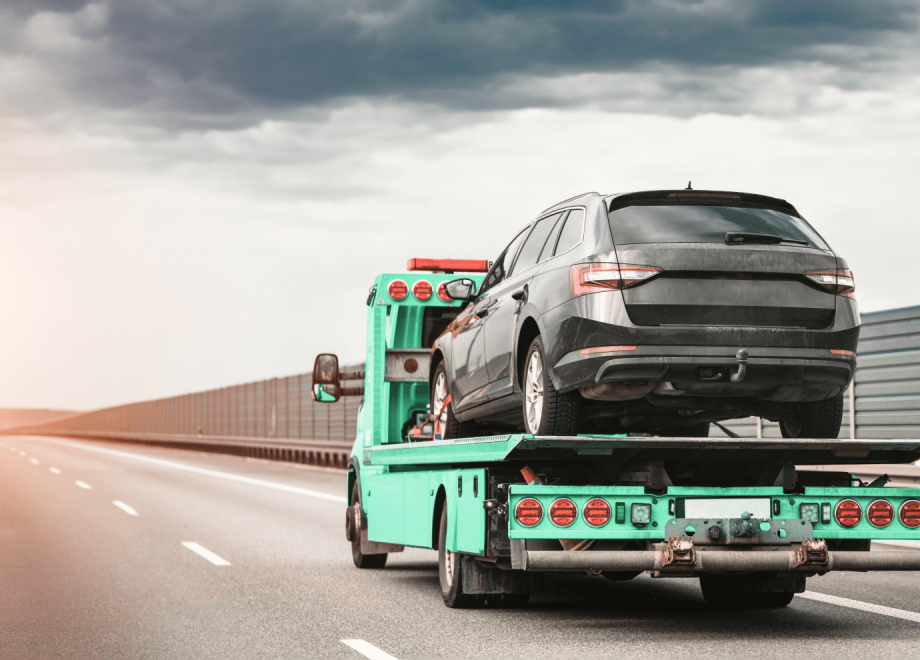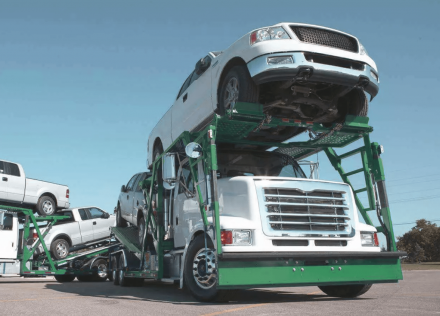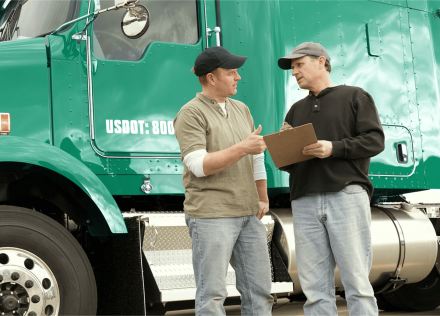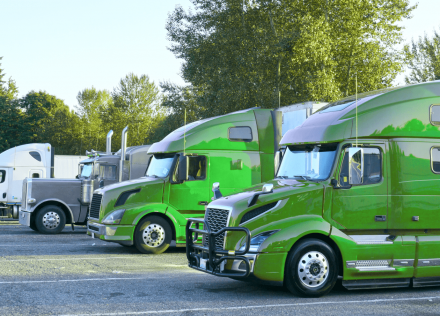
Starting a car hauling business is a venture filled with opportunities, but navigating the process requires a detailed plan and some basic info. As a team of ex-haulers ourselves, we understand this journey firsthand.
All the challenges and flaws we’ve witnessed in the niche inspired us to create HaulK, a specialized platform to fill some gaps and make car hauling management much easier.
But every ambitious hauler must first go through a bunch of business kick-off and organization stages that can’t really be automated or paid for. In this guide, we share our insights to help you build a successful car hauling business.
Create a roadmap and plan things out
Before diving headfirst into the practicalities of car hauling, it's essential to grasp the broader landscape of the transportation and logistics industry. A solid understanding of logistics is not just beneficial; it's crucial for the smooth operation and growth of your business. This is where learning how to get into logistics comes into play.
By familiarizing yourself with the ins and outs of logistics, from the flow of goods to the intricacies of supply chain management, you equip yourself with the knowledge to make informed decisions and strategize effectively. Whether you're negotiating with clients or planning the most efficient route for a haul, a foundational understanding of logistics principles can set you apart in the competitive car hauling market.
Any business foundation crumbles without a sturdy plan backing it up. So start with some brainstorming and priority settling.

Draft a detailed car hauling business plan that outlines your:
- goals, aspirations, and expected milestones;
- target market, target audience, niche trends, and direct competitors;
- selling points, marketing ideas, and promotion strategies;
- overhead budget, financial projections, and growth strategy.
Keep it open-ended - this document will serve as your baseline and guide through the various stages of business development.
Settle on a business type
Another crucial point of your plan is the structure of your business — is it a sole proprietorship, partnership, LLC, or corporation? Each has its own implications for liability, taxation, and operations.
Apart from that, you may not be sure what exact type of trucking services to provide just yet. Here are some ideas:
- Local car hauling — moving vehicles in the immediate vicinity;
- Long-distance hauling — interstate or cross-border hauling services;
- Transport shipping — transportation of vehicles across deep-sea and coastal areas.
You can start small and move on beyond the border. It all depends on your business capacities and ambitions.
Get a truck and/or trailer
Your vehicle is the lifeline of your business. Whether you'll drive one yourself or hire drivers, you need sturdy, high-quality vehicles that can be safely certified and used for work. This calls for separate research to make on your own — you can try to save a little by opting for a used truck or trailer.
You may as well find some cheaper options that can still do the trick and handle work conditions. All in all, make sure to invest in reliable trucks and trailers that match your budget and business goals.
Obtain a CDL
A Commercial Drivers License is a legal permit to use heavy-duty trucks and haul huge loads (with a total weight of 26,000 lbs and beyond) on a commercial basis. It is also proof of the trucker’s ability to handle strictly commercial aspects of road driving, like pre-trip inspection, GVWR check, etc.
A Class A CDL is the go-to license for those looking to operate professionally and work with non-conventional loads (e.g., more than two-three light vehicles). However, certain providers prefer Non-CDL hauling, which is possible but riddled with nuances (learn more about all the nuances of CDL in our article).

Keep up with other legal requirements
CDL isn’t the only necessary permit you must obtain. There are also federal and state regulations governing the transportation industry. This includes vehicle registration, tax regulations, and compliance with safety standards. Ignorance of the law is not an excuse, so knowledge is your shield.
You will have to get an MC (Motor Carrier) number assigned by the FMCSA and fulfill all USDOT requirements. The taxes and fees you’ll need to cover for safe commercial performance include:
- UCR — Unified Carrier Registration fees;
- HVUT — Heavy Vehicle Use Tax;
- IFTA — International Fuel Tax Agreement taxes;
- DOT — Department of Transportation fees;
- IRP — International Registration Plan taxes.
Yes, handling all that single-handedly can be quite confusing. This is why you should also consider hiring a Process Agent at this stage. A qualified professional will help you organize all legal paperwork, prepare documents, and help with court papers.
Hire drivers for a crew
Assembling a trucking business crew, look for qualified (best off certified) professionals with years of field experience. Again, this calls for some independent research. Look for specialists with a registered CDL or those ready to apply for one. Your area of search can start with LinkedIn and Craigslist and span to all reputable job boards you can find online.
Insure your business
With all the resources, effort, and nerves invested into it, it’s only logical to protect your newly organized business from potential losses through timely insurance. While newly bought trucks may come insured “out-of-the-box” (you will only need to prolong and maintain the insurance), there are two types of insurance you must cover as a business owner:
- Life insurance — compensation for physical risks you or your truckers take upon themselves.
- P&C insurance — protects private belongings and compensates for accidents.

Seek financing
Determine your financial needs and explore financing options. You need to secure the necessary funds to both kickstart and sustain your car hauling business, be it through loans, grants, or investors. Right off the bat, make sure to have a separate business bank account for these purposes.
The burning question is, how much exactly can a car transportation business cost? Let’s break this down:
- Insurance: Depending on a particular type of coverage — $800-$1,500.
- CDL: Depending on the state and school — ~$100 fee for test completion and CDL registration.
- Equipment: Trucks (both new and used) can come in the $15,000 to $180,000 price range, with about a $1,000-10,000 down payment.
- Operating authority: MC acquisition and USDOT fee can make up to ~$300.
- Auto transport carrier fixed and variable costs: All of the above, plus the fleet’s tech needs and monthly legal fees, add up to a very ranged approximate number. Such expenses can only be calculated in action. Make sure to use a reliable TMS to track all costs.
If you already have an overhead budget, it’s good to plan out how you will accumulate and maintain it in the future. Keep in mind that a car transport business with a fleet, employees, and active operations is more interesting to investors and potential partners, so you may take your time establishing before going off to search for external financing.
Subscribe to a load board and carrier TMS
Once you’re all set and ready to take on the road, you need jobs. You can find your first load to transport on one of the top load boards in the USA:
Now, the most important thing is to tie things up and structure your business in a productive, cost-efficient, and reliable format. You can do that by adopting a feature-rich TMS — a transportation management system with collaborative, communication, and monitoring tools.
Look for a reliable platform with active expert support that gives you:
- Storage for order-related data and other BI;
- Digital automation tools, like e-signatures and paperwork sharing;
- Dashboards or any sort of reporting features;
- Features for digitized order and fleet management.
For instance, HaulK offers a robust solution for managing orders efficiently — try it out for free. And good luck with starting a profitable vehicle transport business!









